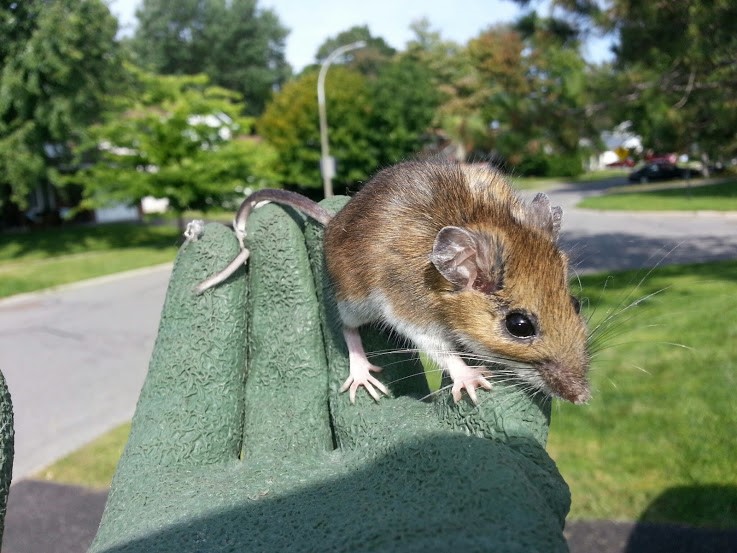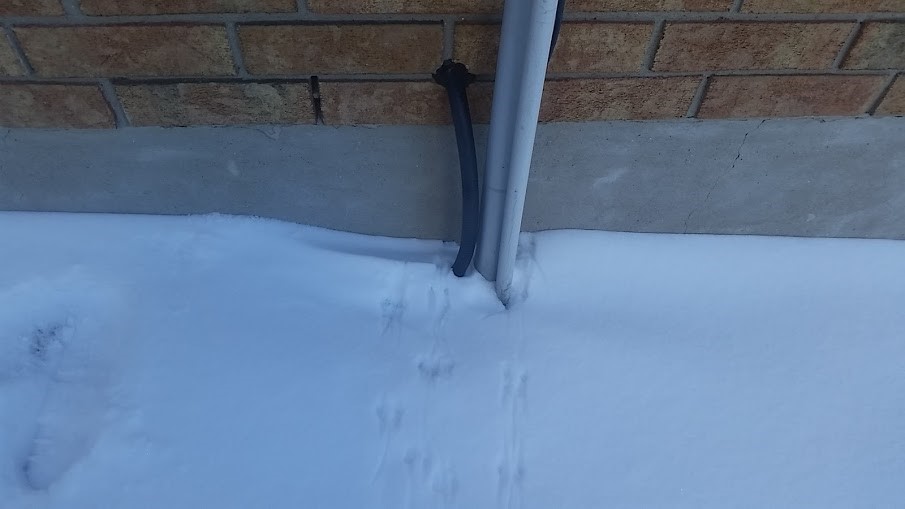This is the most commonly spotted type of mouse. They’re active all year round so you’re most likely to spot a house mouse in your home. Generally, they range between 70-95mm in length with a tail just as long. Their small feet and head with large eyes and ears make them distinguishable from other rodents.
Facts:
- Produce 4-16 babies in 7-8 litters a year. At the most it can add to 128 young per year.
- Love climbing, but will live on the ground or in burrows.
- There’s only 8 weeks from birth to sexual maturity.
- Favourite food is cereal and will eat up to 3g of food a day.

A common house mouse
Field Mouse
Field mice spend most of its time in fields and are rarely spotted in homes. However, during the winter they will sometimes seek shelter in sheds where fruits and vegetables are stored. They’re the biggest pest to farming and agriculture businesses. The mouse is recognizable by the sandy brown fur on the head and back with yellowish and white fur on its side and belly. The field mouse can weigh between 20g and 25g.
Facts:
- Mainly a diet of seeds from crops of trees such as oak, ash, lime, and sycamore.
- Short life span of about two to three months.
- Will eat small snails and insects before seeds are easily found.
- They breed during March/April and October/November.
Deer Mouse
Usually found in forests and other wooded areas, but will enter homes located in close proximity to these places. They destroy wood structures and carry a number of potential health concerns. They’re usually about two to four inches long. Fur is mostly a gray colour with reddish brown except for its white belly. Deer mice have long tails that are bi-coloured.
Facts:
- They’re nocturnal only coming out at night to search for food.
- Live between 2 to 14 months depending on conditions.
- Deer mice are great climbers giving them access to upper levels of buildings and structures.
A leading carrier of hantavirus which can be very dangerous to humans.

Mouse tracks in the snow leading directly to an opening where the air conditioning line enters the brick.
Hamilton animal pest removal
Mice infestations can get out of control very fast. They breed several times a year and produce large litters. During the colder months mice will seek warmer places to nest. This is when they find entrances to homes and buildings.
Animal pest removal of mice takes skill and experience. If you notice mice like sounds, droppings or damage make sure to contact Skedaddle Humane Wildlife Control. We can humanely remove any infestations and seal any holes to prevent future visitors.
Servicing Hamilton since 1989. Call us today – 1-888-592-0387!


